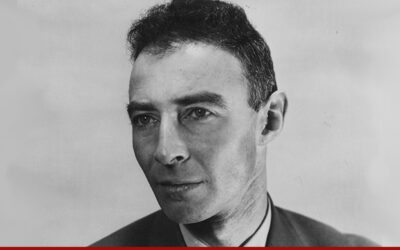I’ve been spending my isolation in NY’s Hudson Valley, in the shadow of the Rip Van Winkle Bridge between Hudson and Catskill. Rip Van Winkle, if you remember the Washington Irving story, is a lovable but lazy farmer who escapes from his nagging wife to head off on a walk. A bunch of troll-like folks share a good amount of drink with him and he falls asleep for what turns out to be a really long time. He wakes to find he’s slept through the entire American Revolution. The idea of sleeping through a defining moment of American history resonates. What will it look like when we walk out of this world-wide pause and find ourselves in a world transformed? I’m thinking it will be a world of magnified divides, but also new epiphanies. Here a freewheeling list, from the mundane to the sublime.
The Cleaving of America
In the U.S., globalization was on the fritz before the virus. Building walls, travel bans, and tariffs and cries of ‘America first’ were mounting. Now, in the absence of a strong national response to Covid-19, we’re seeing regional responses superseding national ones. Recent photos of recolonized Florida beaches show social distancing playing second fiddle to sunshine and sand. NY and California aim for a slower opening up. East and West coalitions are taking root. Texas is watching its borders to keep Louisianians from creeping in. If this kind of thing continues, the world we wake up to may feel more like feudal states than united ones. Dis-unification may trickle down to cities, counties and even neighborhoods that have their own ethos. When Van Winkle woke from his sleep, the trees and the fields remained unchanged but his government looked nothing like before.
The Digital Haves and Have Nots
Bandwidth and devices are the pandemic’s great dividers. I spoke to a woman who was working at home and whose three kids were taking online classes, all using one computer. Only 84% of NYC students participated in online schooling in a recent week. Officials estimate that 30 percent of students in Washington D.C. lack wifi at home. Twelve million homes lack broadband, as of 2017. This is a crisis. And it’s not just students. The elderly, the unemployed, and many who relied on public spaces for connectivity may never catch up with the rest of us from these weeks when screens were our window to the world.
The Virus Divide
The first virus divide was between those who took the threat seriously and those with a more hakuna matata attitude. The second will be those who had and survived the virus versus those still susceptible. When we can reliably diagnose those who have had Covid (your guess is as good as mine) those with antibodies may be allowed to return to routine, to jobs, to the world. Those who have not? Not as clear. Until there’s a vaccine we’ll be in two separate camps. We could see a perverse new form of discrimination against those who conscientiously sheltered to try to flatten the curve.
Essentials vs. Non- Essentials
Boy, this virus has taken a bunch of us privileged types down a notch on the self-importance scale, hasn’t it? The paper-pushers are definitely the baggage in this world where the most prized workers are health professionals or everyday folks who deliver goods, stock shelves and ring out cash registers. Van Winkle woke to a town he no longer recognized with jobs that no longer existed. Will we? I hope the upside will be a look at “important work” through a very different lens: A respect for all workers and all work. Why shouldn’t the higher pay many essential workers have now gotten remain in place?
Essential Vices
Speaking of essentials, addictions get the pandemic bump. On March 22, Gov. Gavin Newsom declared cannabis and scores of other enterprises to be essential businesses. Liquor sales have soared 55% in the week ending March 21, according to market research firm Nielsen. Porn Hub published insights tracking user engagement in different countries from the time global concern about COVID-19 began. It showed that its daily usage increased 11.6% from February 24 to March 17. Anti-anxiety prescriptions rose by 34.1 percent, antidepressant prescriptions jumped by 18.6 percent and anti-insomnia prescription drugs saw a 14.8 percent. (For balance, meditation apps have seen an increase in downloads, too.) Will we wake to a self-medicated world?
Back to the Garden
We cook more. We sew. We entertain ourselves. We cut our own and our families’ hair. So many of the things we abdicated to others so that we could do our “important” work now fill our days. During World War II, Victory Gardens were planted across Europe and the US as a showcase of resiliency. I’m betting we’ll wake to see renewed interest in self-sufficiency.
See, We Do Affect Climate
Anyone who entertained the notion that humans had no effect on climate change will be eating humble pie. Satellite views of Italy showed greatly reduced pollution during the quarantine. There’s been a notable drop in carbon emissions, too. But don’t get complacent, the improvements in the environment after a 2-month pause from driving and polluting will of course not be permanent. But we now have well-documented evidence our actions can reverse climate change if those who have failed to see evidence up until now are willing to notice.
Back to Work
The biggest reveal of the pandemic may be about the way we work. During this great work-from-home experiment, most have found that productivity did not diminish. In some cases, it led to new creativity. Without commutes, dress-up time and office diversions we may focus more on the task at hand. Managers are seeing workers in a new light – surrounded by family, the objects they love, and the trouble spots in their days. A kinder, more compassionate, more flexible workplace should, at least, be how we return to work.
Women and Minorities

One last note. Women are rocking the pandemic. According to the New York Times, looking at census data and the federal government guide to essential workers shows that one in three jobs held by women has been designated as essential. Nonwhite women are more likely to be doing essential jobs than anyone else. And women are doing great at the world leadership level, too. This montage of heads of state says it all. All these women leaders have shown remarkable leadership during the health crisis.
Rip Van Winkle awoke to find an energized town. George Washington’s portrait had replaced King George’s and the spirit of entrepreneurship and growth was everywhere. Rip himself, though, remains fundamentally unchanged. How will you wake up and how will you change? Let us know.
Source: https://techonomy.com/2020/04/were-rip-van-winkled-what-happens-when-we-wake/




